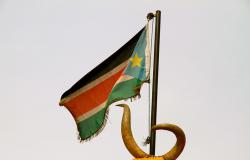
This article examines how former Protection of Civilian site (PoCs) residents are staying safe and protecting themselves after the United Nations Mission in South Sudan's (UNMISS) handing over of the PoCs to the Revitalised-Transitional Government of National Unity (R-TGoNU). Using key informant interviews, questionnaires, and observations, we establish that those still residing in the PoCs do so with less humanitarian assistance, increased insecurity, and few authorities they can rely upon or turn to for protection. In response, it is shown how camp residents have developed their own safety and protection strategies at the cost of their ability to pursue livelihoods, move freely outside of the camps, and publicly express their identities. Although broadly stable, this situation is unsustainable and risks the safety of camp residents and the wider ongoing peace process. The paper concludes with policy recommendations for humanitarians and R-TGoNU policymakers interested in their welfare.
Image: Utenriksdepartementet UD via Flickr (CC BY-ND 2.0)